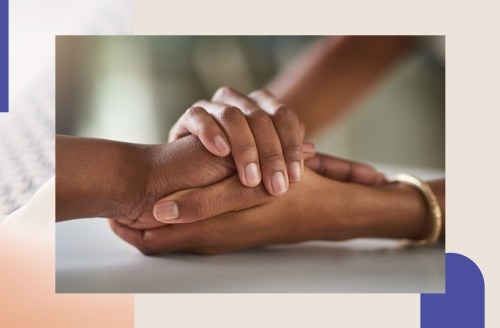When Patty* came to see me, she had been struggling with infertility for three years and had undergone in vitro fertilization (IVF) three times, with no success. She apologized for crying as she told me her story.
“I’m not usually so emotional,” she said. “It’s just that I don’t know if anything will ever work. If I had some idea that this was going to be okay in the end, I’d deal with it better.”
In one sentence, she had summed up the dilemma so many infertile couples face. Doctors can make an educated guess about what might help them, but no one can guarantee that they’ll conceive. Women describe to me the cycle of hope and then despair that they face each month as they get their period. Over months and sometimes years, it takes a toll.
I’m an acupuncturist and herbalist, but really, after all these years, I’m a fertility coach. I help my patients find the open door, which is different for everyone. For that reason, I wrote a book with a fertility doctor to combine our knowledge and experience. Making Babies: A Three-Month Program for Maximum Fertility was published a decade ago, but it remains a bestseller in its genre because it helps couples troubleshoot their situations with a different approach for each of them.
Infertility isn’t a punishment, and it’s not your fault.
But “different for everyone” isn’t always a satisfying answer, especially if you don’t know where to begin. My patients are grieving a future they had planned, often with no one to talk to apart from their partner. They are sometimes angry, sometimes sad, and often isolated and desperate. For many, this is the first obstacle they have faced that they can’t tackle by working harder or being smarter. They scour the internet for information about the best doctors and the latest techniques. They compare notes anonymously with strangers on chat boards, looking for the piece of information they have missed.
At some point, many patients start to blame themselves. “Is this because I drank in college?” one patient asked me. What they are looking for is a reason and some control, in a situation where there is often neither. Another one of my patients spent several years trying to conceive her second child. During that time, she chose to give up sugar and follow a strict diet, in the hope that this would help. She described to me how hard it was not to eat some of her toddler’s birthday cake at his party. “You could have some cake if you wanted to,” I suggested. She looked at me in horror and said, “If I bend the rules, I’ll never get pregnant.” My heart ached for her. Over time she realized her “fertility diet” had become a crutch and wrote for my company’s blog about how controlling what she ate had become a form of self-punishment.
I’ve found that if I help my fertility patients to accept the parts of this experience that are outside their control, it frees them to become creative about the elements they can control. It’s as if they have been bashing their heads against a wall, unable to see a door right next to them.
And that’s what I’ve learned after 20 years in practice: There is no one size fits all solution. Sometimes the solution is a dietary adjustment, without the need for a strict regimen. Sometimes it’s correcting a simple hormone imbalance or embryo implantation issue, and often it involves a combination of Eastern and Western medicine. The answer varies for everyone, but when I look back over thousands of patients, almost everyone ended up with a baby, including each of the patients I’ve mentioned here.
Infertility isn’t a punishment, and it’s not your fault. And it’s not a brick wall. It’s a multi-faceted disorder that requires persistence and a multi-pronged approach until you find a solution that works for you.
*Name has been changed to protect privacy
Jill Blakeway is a doctor of acupuncture and Chinese medicine and the founder of Yinova in New York City. She and her team of experienced practitioners are available for virtual fertility coaching and wellness consultations online as well as at three clinics in Manhattan and Brooklyn.
Sign Up for Our Daily Newsletter
Get all the latest in wellness, trends, food, fitness, beauty, and more delivered right to your inbox.
Got it, you've been added to our email list.











